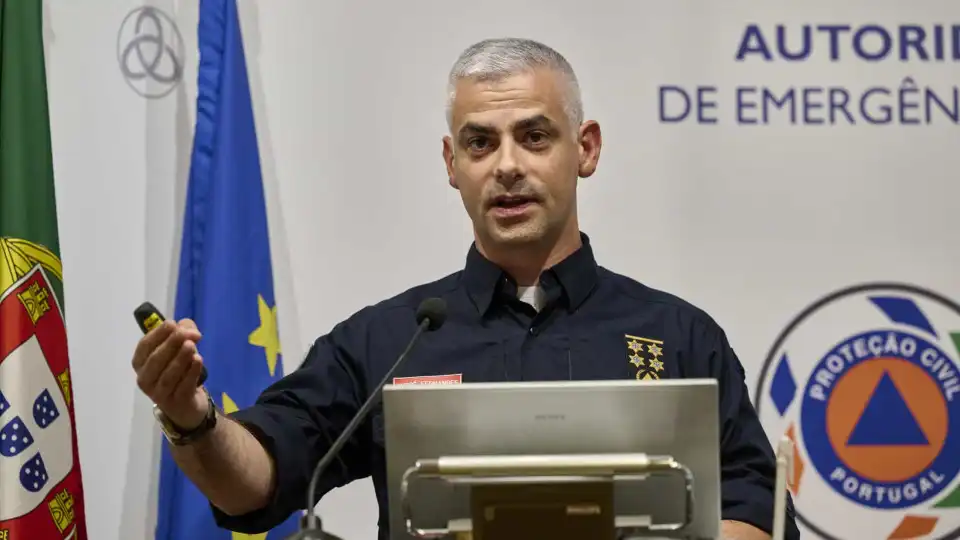National Commander of ANEPC wants to maintain the trend of reducing fires
The national commander of the National Emergency and Civil Protection Authority (ANEPC), André Fernandes, stated today that the goal is to maintain the reduction of fire ignitions, whose consequences have a greater impact with climate change.

© Getty Images

País Incêndios
"A country like Portugal with over 200 daily ignitions is absurd. The system is all the more effective the more ignitions are reduced" and it is "a national goal to reduce the number of rural fires", which is why it is also necessary to reduce the number of occurrences, said André Fernandes.
The national commander stressed that "the Portuguese have been showing more preventive behaviour" and the authorities have been acting, with several arrests of suspected arsonists, which has justified the systematic reduction in the number of ignitions.
"In Portugal, a large percentage of fires are of human origin, whether intentional or due to negligence" and the reduction is also due to "the campaigns carried out", such as the Portuguese realising "that they have to be part of the solution" to protect the territory.
On the other hand, 95% of new ignitions "are resolved within the first hour and a half", with smaller fire areas, a sign that the system, whose "scale is already consolidated", is also "effective and prevents occurrences from becoming major occurrences".
However, at the same time, "climate change has had another impact", because "any ignition can potentially generate a large fire".
This is why it is necessary to "reduce risky behaviour", with the maintenance of prevention strategies, such as land clearing, protection strips and permanent awareness-raising actions in relation to the population.
Last year, in a major fire in Castelo Branco, there were "progressions of two kilometres per hour", which is "very fast" and "poses new challenges" to the firefighting teams.
"The weather conditions are favourable for the ignition to be more intense, because it releases more energy" and the "fighting system has to become more specialised" in fighting the various types of fires, explained André Fernandes.
Land use planning measures will only have an effect in many years' time and there is what André Fernandes considered to be the "combat trap".
"What does not burn in one year is carried over to the next", putting pressure on the firefighting system, he said.
Within the scope of reinforcing firefighting, a source from the European Union explained at today's meeting that there is an increase in the resources to be made available between countries within the framework of the strategy of previous years, with Portugal receiving two light amphibious aircraft under this supra-national system.
Firefighters from Latvia and Finland will come to Portugal to receive training, and it is expected that they will be called to fight fires alongside the Portuguese.
The strategy of these teams is to "share experiences" and help the northern countries to deal with fires, a problem that has been aggravated by climate change.
The objective, explained André Fernandes, is for these firefighters from northern Europe to "learn other firefighting techniques". Therefore, now it is time to "welcome them and put them to work".
Read Also: Fires cost 377.2 million euros in Portugal in 2023 (Portuguese version)

Descarregue a nossa App gratuita.
Oitavo ano consecutivo Escolha do Consumidor para Imprensa Online e eleito o produto do ano 2024.
* Estudo da e Netsonda, nov. e dez. 2023 produtodoano- pt.com



